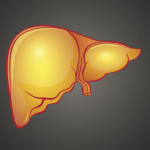Florida-based nonprofit The Campbell Foundation awarded a $100,000 grant to The Wistar Institute’s Vaccine & Immunotherapy Center in Philadelphia to study a unique method of fighting chronic inflammation in people living with HIV.
Specifically, Mohamed Abdel-Mohsen, PhD, assistant professor at the Wistar Institute, will look into the role that glycosylation (in this case, the process of adding sugar molecules to proteins) might play in chronic inflammation. Abdel-Mohsen and his team want to find out whether attaching these altered molecules to cells contributes to the increase in inflammation common among people with HIV.
As a Campbell press release noted, this is an important line of research because although HIV-positive people who take meds can live healthier, longer lives, they are at higher risk for other health issues related to chronic inflammation, including cardiovascular disease and neurologic problems.
The emerging field of glycobiology is mostly unexplored, said Abdel-Mohsen in the press release. “Thanks to the recent developments in glycobiological technologies, we can now tackle the mechanism and consequence of altered glycosylation patterns and what this means for HIV patients.”
“Our focus has always been not just on finding a cure, but also on helping those living with HIV through novel research,” added The Campbell Foundation’s executive director Ken Rapkin. “This is a novel proposal to look at the role of glycans in HIV inflammatory disease. The preliminary results are compelling, and we are pleased to be able to fund this research so that Dr. Abdel-Mohsen and his team can continue their work to address chronic inflammation and associated comorbidities in those living with HIV/AIDS.”







Comments
Comments